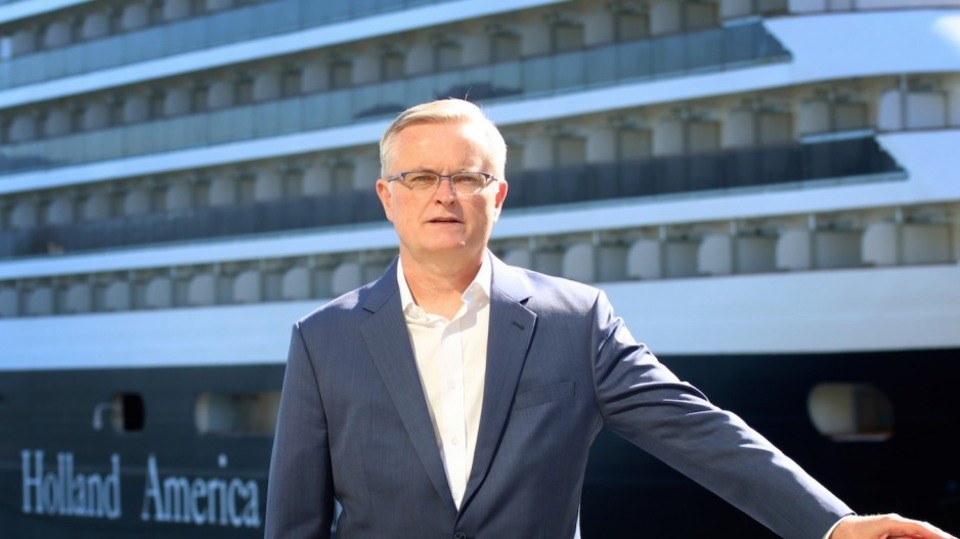When cruise ships endured lengthy delays at Canada Place in late August, many speculated that Vancouver’s reputation for being a welcoming and enjoyable city was getting a black eye.
A bigger concern for industry insiders is an ongoing labour shortage.
Canadian Merchant Service Guild (CMSG) tugboat operators’ job action delayed three ships, with the longest detention being 20 hours for the 2,850-passenger Celebrity Eclipse.
Passengers may have also been inconvenienced by other labour disruptions in the city.
The British Columbia General Employees Union (BCGEU) were simultaneously picketing four liquor and cannabis warehouses. That halted liquor and wine deliveries to stores and restaurants, causing supply shortages across the hospitality sector, degrading some tourist experiences.
Days earlier, lineups to get through security at Vancouver International Airport (YVR) snaked deep into the departure terminal.
Allied Universal’s airport security screening workers had taken impromptu job action after their summer bonus period had ended, and their employer was no longer penalizing them if they called in sick. The workers had held rallies demanding higher pay earlier in the year.
Gate Gourmet’s airline catering workers then rattled sabres to warn of potential escalating job action after voting 98 per cent in favour of a strike back in July.
One consequence of the CMSG job action could be renewed lobbying from Alaskans to have the U.S. Congress legislate that U.S. cruise ships on the Alaskan run no longer must call at a Canadian port.
The guild’s action prompted ships to skip stops and shorten itineraries, likely frustrating business owners in affected port cities, said Cruise Lines International Association - North West & Canada (CLIA) spokesman Barry Penner.
Alaskan politicians during the pandemic successfully persuaded Congress to pass a bill to enable cruise ships to temporarily bypass Vancouver and Victoria so long as Canadian ports were closed. Congress could resurrect that bill, he told BIV.
While Penner said he is concerned that union labour disruptions will adversely shape visitors’ perceptions of Vancouver, he believes that it is important to put the job actions in perspective.
“There have been disruptions and delays globally,” he said.
Penner and others say the province’s labour shortage is a much bigger challenge for tourism-related business owners.
The labour shortage may endure long term because Canada’s population is aging, its birthrate is low and its immigration processes are clogged.
“The biggest challenge of all is finding qualified staff who are properly motivated and willing to go the extra mile,” said Royal Roads University associate faculty Rod Harris, a former CEO at what evolved to become Destination British Columbia.
“That’s particularly true for restaurants.”
He said that instead of generalizing, and saying that labour strife is harming tourist experiences in B.C., it is important to drill down and look at specific sub-sectors.
When it comes to aviation, Harris said, delays and glitches have been a problem worldwide all summer.
Indeed, YVR’s performance in having manageable waits for security screening and fewer cancelled or delayed flights has consistently been better than that of Toronto Pearson International Airport (YYZ).
Flight-tracking website FlightAware in July ranked Toronto’s main airport as the world’s worst for flight delays.
Travel author Rick Antonson, a former CEO of what evolved to become Destination Vancouver, told BIV that he believes travellers are getting used to delays and glitches, after being spoiled with efficient transportation pre-pandemic.
Historically, travel was arduous, he said.
The word “travel” is believed to have derived from the French word “travail,” which means to work, Antonson added.
“Moving from one place to another was always a chore,” he said.
“Before the average person could travel, those who did so were explorers or merchants, and it was done for the business of trade, or trade development or trying to get to new places. That meant that it had elements of danger and making it up as you go.”
He added that the average consumer did not conceive of travelling long distances for pleasure until after the Second World War.
Canada's national airline traces its history back to 1937, when precursor airline Trans-Canada Air Lines flew its first commercial flight – to Seattle from Vancouver. That 50-minute flight on a Lockheed L-10A Electra airplane reportedly cost its two passengers $14.20 each for a round-trip ticket, and its cargo included bags of mail.
Antonson, who lives in the Okanagan, is doing his part to inspire visitors to come to B.C. His book Train Beyond the Mountains: Journeys on the Rocky Mountaineer is scheduled to be released next spring.
That book chronicles his trip on the Rocky Mountaineer train with his 10-year-old grandson. The two took the southern route to Vancouver from the Rocky Mountains and then returned via Whistler, Quesnel and Jasper.
“A future trend of travel is more intergenerational travel – grandparents taking grandkids,” he said. “It’s always happened to a certain extent, but it’s more now.” •



